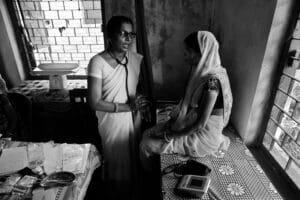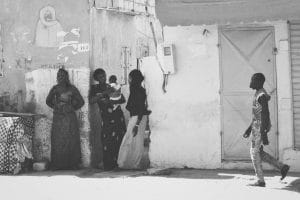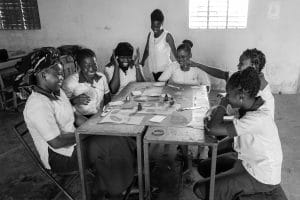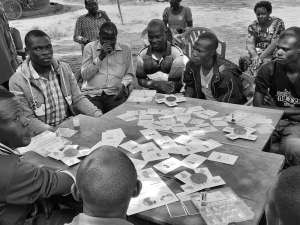Exploring the Power of Narratives on Reproductive Health in Francophone West Africa
HIGHLIGHTS
- Harmful narratives play a fundamental role in limiting reproductive health access and rights around the world.
- In collaboration with the Ouagadougou Partnership Coordination Unit, we started work to identify the most relevant narratives influencing reproductive health across nine Francophone West African countries.
The Challenge
Every day we are inundated with information, opinions, and content from many sources. Research from the behavioral sciences has long established that under these circumstances, we develop shortcuts, or heuristics, to organize and process information. Narratives serve as heuristics that help us make sense of how the world works and why. They are emotionally potent and memorable and can be formed from a wide range of sources. Narratives shape our beliefs and at times can even influence our actions in ways that are at odds with our beliefs.
Despite their clear significance, little is known about the specific role narratives play in impacting reproductive health outcomes and policies. Even less is known about what approaches can most effectively change harmful reproductive health narratives in different contexts. Evidence from the African continent is even more limited. Only three studies from a recent systematic review of the use of narratives to impact health policy-making were identified from the continent.
Our Approach
The first step of any evidence-based narrative change effort is to identify the existing narratives, as well as their prevalence and impact on outcomes of interest. In our first stage of work, we sought to develop an initial understanding of existing narratives in the region by reviewing the available literature. This entailed identifying recent quantitative and qualitative papers from the nine Ouagadougou Partnership countries, coding relevant attitudinal, belief, or normative statements or measures, and grouping relevant data into different themes or narratives.
Despite the limitations of leveraging existing research, this initial synthesis provides an important foundation for understanding potential narratives as a means to identify where additional research may be particularly useful. Follow-on research to develop accurate narrative measurements, deepen understanding of the sources and local nuances of narratives, and measure the prevalence of different narratives, their relevance on contraceptive uptake, and population differences would create a roadmap to guide the subsequent co-design of impactful and innovative narrative change approaches.
Takeaway
Narratives shape and limit the contraceptive choices and reproductive health of women and families around the world. The application of behavioral science to identify the most important narratives offers exciting opportunities to collaborate with national advocates and civil society organizations to catalyze effective narrative change in their communities.
Interested in our work applying behavioral science to global health? Email gh@ideas42.org or reach out to us on X at @ideas42 to join the conversation.
Partners









